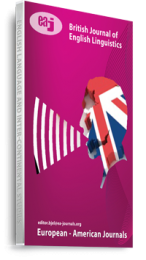This research explores private and public newspaper headlines on the Anglophone crisis in Cameroon from a Critical Discourse Analysis (CDA) perspective. The aim is to find out the lexical choice and rhetorical questions used in reporting the crisis, and how they portray the ideologies of the reporters and newspaper ownership, as well as shape readers’ thoughts. Data for this study comprises 130 headlines collected from 29 randomly selected newspapers in Cameroon. Results show the use of vocabulary that shows imposition, tension and dialogue. Some rhetorical questions were also discovered. However, there was a lot of incompatibility in the way government and private newspapers reported the Anglophone crisis. Lexical choice in private newspaper headlines paint a negative picture of the Cameroon government, and pushes readers to see the government as deliberately refusing to show great attention to the crisis, and unable to protect its citizens. On the other hand, Cameroon Tribune hedge information on the crisis, swallows tension and advocates national unity. The state owned newspaper presents the Anglophone contestants in the crisis as perpetrators or terrorists who are frustrating children’s future. Therefore, the newspaper publishers exercise power through language to influence the thought and opinion of Cameroonians on the Anglophone crisis.
Keywords: Anglophone Crisis, Ideology, Newspaper Headlines, critical discourse analysis

